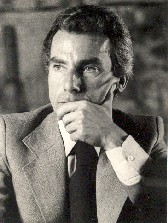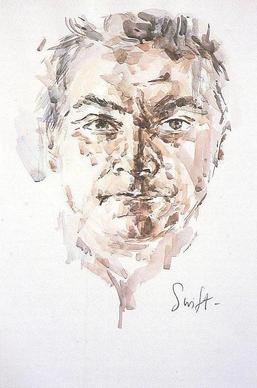Francisco de Sá Carneiro facts for kids
Quick facts for kids
Francisco Sá Carneiro
GCTE GCC GCL
|
|
|---|---|
 |
|
| Prime Minister of Portugal | |
| In office 3 January 1980 – 4 December 1980 |
|
| President | António Ramalho Eanes |
| Deputy | Diogo Freitas do Amaral |
| Preceded by | Maria de Lurdes Pintasilgo |
| Succeeded by | Francisco Pinto Balsemão |
| President of the Social Democratic Party | |
| In office 2 July 1978 – 4 December 1980 |
|
| Secretary-General | Amândio de Azevedo António Capucho |
| Preceded by | José Menéres Pimentel |
| Succeeded by | Francisco Pinto Balsemão |
| In office 31 October 1976 – 10 November 1977 |
|
| Secretary-General | Joaquim Magalhães Mota |
| Preceded by | Office created |
| Succeeded by | António Sousa Franco |
| Secretary-General of the Social Democratic Party | |
| In office 28 September 1975 – 31 October 1976 |
|
| Preceded by | Emídio Guerreiro |
| Succeeded by | Joaquim Magalhães Mota |
| In office 24 November 1974 – 25 May 1975 |
|
| Preceded by | Office created |
| Succeeded by | Emídio Guerreiro |
| Assistant Minister to the Prime Minister | |
| In office 17 May 1974 – 17 July 1974 |
|
| Prime Minister | Adelino da Palma Carlos |
| Preceded by | Mario Morais de Oliveira |
| Succeeded by | António de Almeida Santos |
| Minister without Portfolio | |
| In office 16 May 1974 – 17 July 1974 |
|
| Prime Minister | Adelino da Palma Carlos |
| Preceded by | Office created |
| Succeeded by | Ernesto Melo Antunes Joaquim Magalhães Mota Vítor Alves |
| Personal details | |
| Born | 19 July 1934 Porto, Portugal |
| Died | 4 December 1980 (aged 46) Camarate, Loures, Portugal |
| Political party | Social Democratic Party |
| Other political affiliations |
Democratic Alliance (coalition when Prime Minister; 1979–80) Liberal Wing (1968–73) |
| Spouse | Isabel Sá Carneiro (separated) |
| Domestic partner | Snu Abecassis |
| Children | 5 |
| Alma mater | University of Lisbon |
| Signature | |
Francisco Manuel Lumbrales de Sá Carneiro (born July 19, 1934 – died December 4, 1980) was an important Portuguese politician. He served as the Prime Minister of Portugal for most of 1980. He also founded the Social Democratic Party. Sá Carneiro was Prime Minister for only eleven months. He tragically died in a plane crash on December 4, 1980. His partner, Snu Abecassis, was also on board. Later investigations suggested there might have been a bomb or sabotage on the plane.
Contents
Early Life and Education
Francisco Sá Carneiro was born in Porto, Portugal, on July 19, 1934. He was the third of five children in his family. His father, José Gualberto Chaves Marques de Sá Carneiro, was a lawyer.
Sá Carneiro himself became a lawyer after studying at the University of Lisbon. His education prepared him for a career in public service.
Political Beginnings and the Liberal Wing
Sá Carneiro began his political journey in 1969. He became a member of the National Assembly. At that time, Portugal was under a dictatorship led by Marcelo Caetano.
Sá Carneiro became a leader of the "Liberal Wing" group. This group tried to slowly change the dictatorship into a liberal democracy. They wanted more freedom and a government chosen by the people.
Founding the Social Democratic Party
In May 1974, Portugal experienced the Carnation Revolution. This event ended the dictatorship peacefully. A month later, Sá Carneiro helped create a new political party.
He founded the Popular Democratic Party (PPD) with other important figures. This party was later renamed the Social Democratic Party (PSD). Sá Carneiro became its first secretary-general.
At first, Sá Carneiro said the PPD was a left-of-centre party. However, over time, the party shifted. It became the main centre-right political force in Portugal.
Serving in Government
Sá Carneiro served as a minister in several temporary governments. These governments were formed after the Carnation Revolution. In 1975, he was elected as a deputy to the Constitutional Assembly. This assembly was responsible for writing Portugal's new constitution.
In 1976, he was elected to the Assembly of the Republic. He briefly stepped down as party president in 1977. However, he was re-elected to lead the party the following year.
Becoming Prime Minister
In late 1979, Sá Carneiro led a group of parties called the Democratic Alliance. This group included his Social Democratic Party and other parties. They won the general election.
The Alliance received 45.2 percent of the votes. They won 128 out of 250 seats in the Assembly of the Republic. Seventy-five of these seats belonged to Sá Carneiro's PSD.
On January 3, 1980, President António Ramalho Eanes asked Sá Carneiro to form a government. This was Portugal's first majority government since the 1974 revolution. In October 1980, another election was held. The Democratic Alliance won even more seats, showing strong public support.
Tragic Death and Legacy

Sá Carneiro's time as Prime Minister was cut short. On December 4, 1980, he was traveling to a presidential election rally in Porto. His plane, a Cessna 421, crashed into a building in Camarate, near Lisbon Airport.
Eyewitnesses reported seeing parts falling from the plane shortly after takeoff. This led to many conspiracy theories that the crash was not an accident. Some believed it was an assassination.
The Defence Minister, Adelino Amaro da Costa, was also on the plane. He was said to have important documents. However, no clear evidence has ever proven the assassination theories.
After Sá Carneiro's death, the Democratic Alliance struggled. The public rallied behind the current president, António Ramalho Eanes. He easily won the presidential election a few days later.
The airport where Sá Carneiro was heading was later named Francisco de Sá Carneiro Airport in his honor. This was done despite some objections due to the nature of his death.
Family Life
Francisco Sá Carneiro was married to Isabel Maria Ferreira Nunes de Matos. They had five children together. Later in his life, he lived with Snu Abecassis, who died with him in the plane crash.
Political Ideas and Impact
Sá Carneiro's political ideas were influenced by his Catholic faith. He believed in Christian humanism. He wanted to adapt social-democratic ideas to Portugal's culture.
His party, the PSD, focused on personal rights and duties. It worked to privatize industries that had been taken over by the government. However, he also increased spending on social programs.
He supported land reform and the redistribution of land in some areas. Sá Carneiro was proud that his party appealed to working-class and middle-class people. He called his party's unique approach "Portuguese Social Democracy."
He was also known as a populist leader. This means he was very popular with ordinary people.
Works Written by Sá Carneiro
Sá Carneiro wrote several books about his political ideas. Some of his notable works include:
- Uma Tentativa de Participação Política (An Attempt of Political Participation) (1973)
- Por uma Social-Democracia Portuguesa (For a Portuguese Social Democracy) (1975)
- Poder Civil; Autoridade Democrática e Social-Democracia (Civilian Power; Democratic Authority and Social Democracy) (1975)
- Uma Constituição para os Anos 80: Contributo para um Projecto de Revisão (A Constitution for the 1980s: Contribution for a Project of Revision) (1979)
Honours and Awards
Francisco Sá Carneiro received several important honors in Portugal:
 Grand-Cross of the Order of Christ (1981)
Grand-Cross of the Order of Christ (1981) Grand-Cross of the Order of the Tower and of the Sword, of Valour, Loyalty and Merit (1986)
Grand-Cross of the Order of the Tower and of the Sword, of Valour, Loyalty and Merit (1986) Grand Cross of the Order of Liberty (1990)
Grand Cross of the Order of Liberty (1990)
Images for kids
See also
 In Spanish: Francisco Sá Carneiro para niños
In Spanish: Francisco Sá Carneiro para niños
- Liberalism in Portugal
- Francisco Sá Carneiro Airport
 | May Edward Chinn |
 | Rebecca Cole |
 | Alexa Canady |
 | Dorothy Lavinia Brown |


